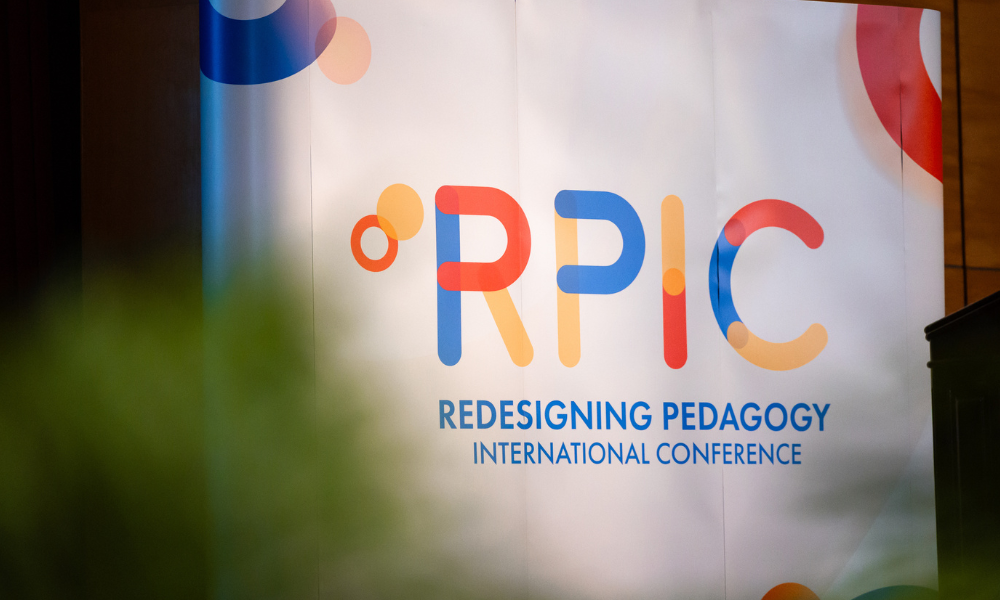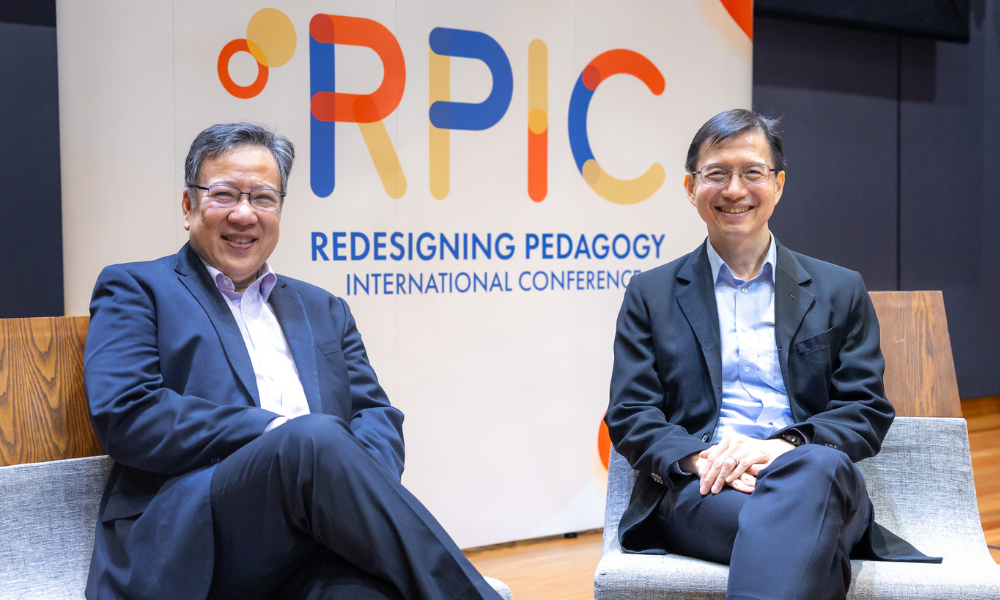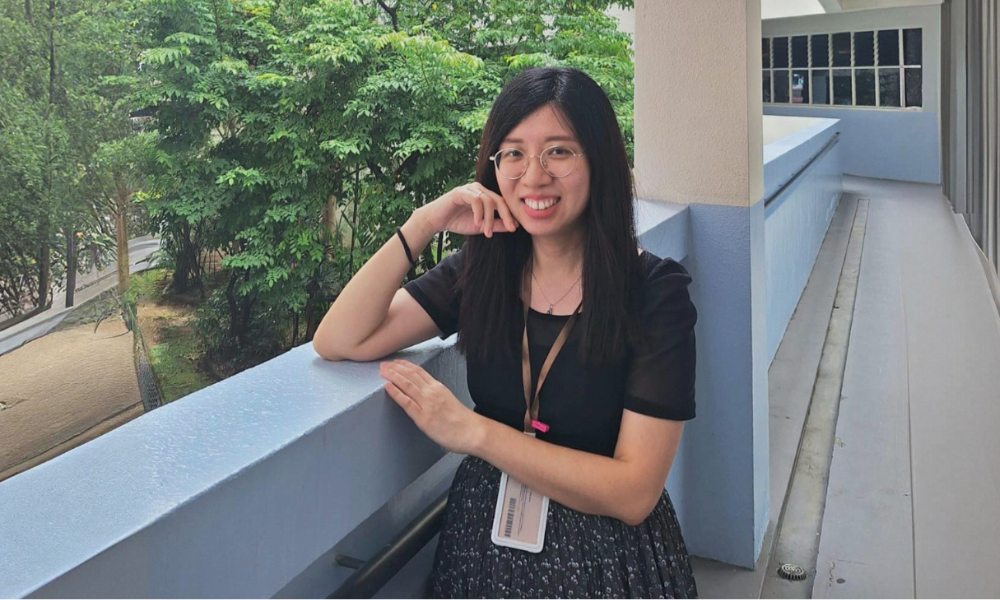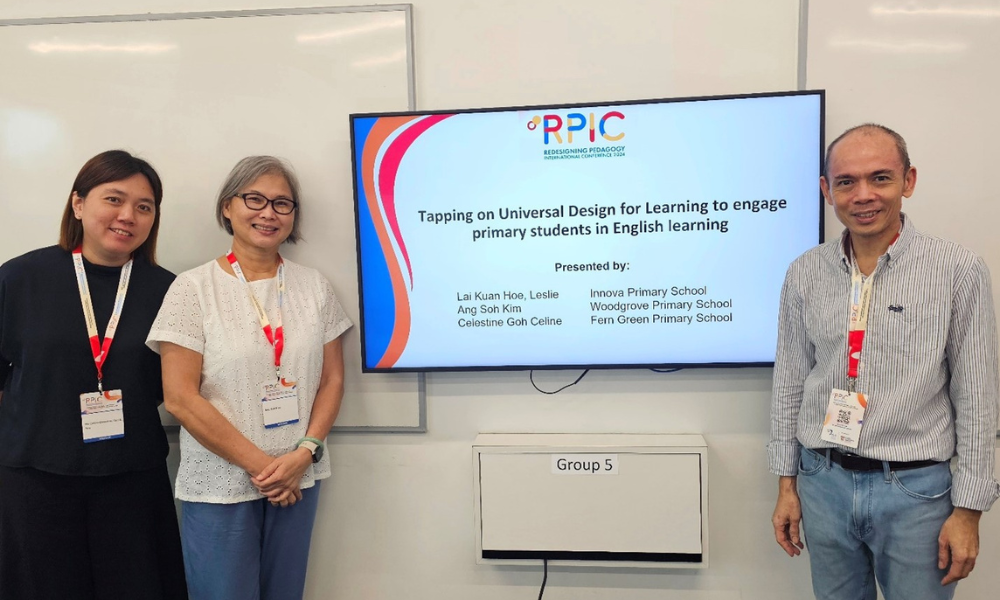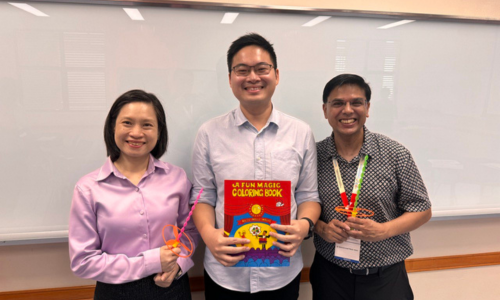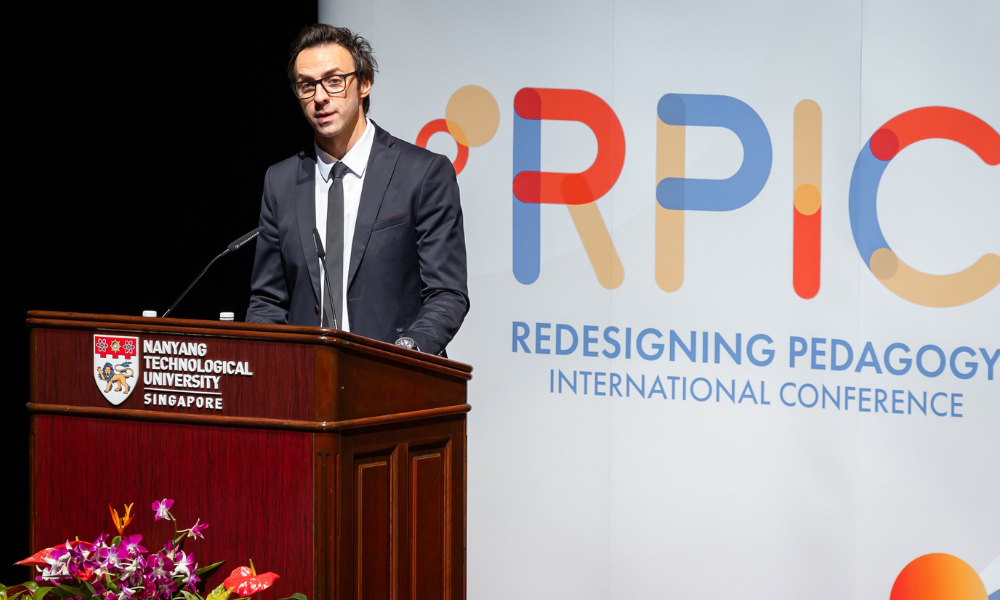Getting In on the Action
The term “action research” has been bandied among the teaching community for several years now. But while the concept has received in-principle approval from practitioners, the actual adoption and implementation of this practice in classrooms has been slow to take off. What is action research really about? What do teachers stand to gain from it? SingTeach takes a critical look at what action research has to offer.
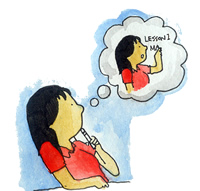 Ask a question about teaching and you’ll easily find yourself reeling from the number of books and academic journals devoted to education. Thanks to the Internet and the modern library, teachers in Singapore have all of these within easy reach. Yet, despite the “answers” offered by academic research, many teachers still find themselves asking the same question: How can these work inside my classroom?
Ask a question about teaching and you’ll easily find yourself reeling from the number of books and academic journals devoted to education. Thanks to the Internet and the modern library, teachers in Singapore have all of these within easy reach. Yet, despite the “answers” offered by academic research, many teachers still find themselves asking the same question: How can these work inside my classroom?
Action research encourages teachers to explore, investigate and figure out the issues they face in their own classrooms. Unknown to many, this kind of research was actually inspired by scholars, teachers and teacher educators who believed that research could also come from teachers, instead of just being about them.
Action what?
While the term “action research” only emerged in the 1950s, the idea of teachers asking questions about their own practice has been around since the early 20th century. In fact, John Dewey (1904) himself criticised the tendency of educational development to “jump uncritically” from one new technique to the next. He believed that teachers had an important role in determining what worked and what did not work in the classroom.
Lewin (1948) took it a step further by criticising the usefulness of basic research, that is, research which only aims to expand knowledge and not create or change something. According to him, there needed to be another kind of research to create social change. By the 1970s, the Centre for Applied Research in Education was established at the University of East Anglia, in the United Kingdom, where teachers were encouraged to be more involved in the research process.
Today, action research is defined as teacher-initiated classroom investigation that seeks to give teachers a better understanding of their practice and, hopefully, bring about change in the classroom. It goes against the “process-product” paradigm where one simply looks at how a teacher’s behaviour affects student performance (more often than not, as seen through test scores) and does not take into account the fact that they are theorisers, interpreters and critics of their own practice as well.
In Singapore, the Teachers Network organises Learning Circles, which are specifically dedicated to answering these kinds of questions. Here, teachers are encouraged to do action research by collaboratively discussing, investigating and improving on their own practice. Action research projects include a whole range of topics and often reflect real concerns that teachers deal with every day.
But does it count as “real” research?
However, action research also has its own share of criticism. After all, full-time teachers cannot be expected to conduct research studies in the way that their university-based counterparts do. This is why some academics dismiss action research as not “rigorous” enough.
Action research is also not an easy task, especially for teachers who have to juggle many responsibilities, from grading papers to leading co-curricular activities. According to Professor Marilyn Cochran-Smith, an American teacher educator and researcher, generative action research requires “an inquiry stance” where one is always questioning, exploring and improving teaching and learning. This can be challenging in the real world of school bureaucracy, tight deadlines and limited time.
Professor Cochran-Smith also points out that action research is not meant to replace university-based research. Rather, it generates local knowledge which comes from a teacher’s own inquiry and that of others. As a result, action research makes use of a different methodology as compared to regular academic research. It is inspired by problems in practice, or discrepancies between a particular intention and reality. In contrast, basic research emerges from a study in a discipline and the analysis of theoretical, empirical literature.
Where do we go from here?
Today, there is a continued effort to make action research a recognised and important part of teachers’ professional development. This includes helping teachers be smarter “research consumers” by knowing how to interpret, critique and use research in their practice, as well as learning how to pose and explore questions about what they observe in the classroom.
In spite of its difficulties, action research supporters believe it is still one of the best ways to deal with the many challenges facing educators today. As Professor Cochran-Smith put it, “If the alternative is that things stay the same, I’m in favour of the fight!” In Singapore, educators have taken on this challenge as well; with more teachers finding ways to gather information, inquire and improve on learning in the classroom.
The case for action research
So what are the main issues for and against action research? Here is a brief look at the ongoing debate on whether teachers can inform, criticise and change their own practice:
| Against: | For: |
| Action research is biased. How can teachers do research on something which they are a part of? |
We need to involve teachers in order to understand the process of teaching others. |
| The research is too specific. It is only useful for teachers in a particular school. | Although action research studies a particular situation, it does not mean that other teachers can’t learn from it as well. |
| It does not contribute to the academic study of the discipline of education. | It also asks very important questions about theory and practice.When a teacher asks, “Why do my students like reading books in class but not at home?” she is actually implying, “Why isn’t the reading programme encouraging my students to be independent readers?” |
| Why should teachers do research? There is hardly enough time to teach, grade papers and do admin work! | Teachers can learn by studying their own experiences and not relying only on the findings of others. |
| The methods and review of related literature of action research are not “rigorous” enough! | It’s not supposed to be academic research! |
Parts of this article were based on the talk Professional Development, Teacher Research, and Inquiry by Professor Marilyn Cochran-Smith held on 13 July 2006 at the National Institute of Education.
Some useful references:
Cochran-Smith, M. (1993). Inside/outside: Teacher research and knowledge. New York: Teacher’s College Press.
Cochran-Smith, M. (2005). Teacher educators as researchers: Multiple perspectives.Teaching and Teacher Education, 21(2), 219-225.
Dewey, J. (1904). The relation of theory to practice in education: The third NSSE yearbook (Pt. 1). Chicago: University of Chicago Press.
Lewin, K. (1948). Resolving social conflicts. New York: Harper & Row.

